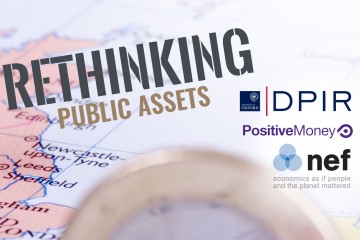
Brexit: Why the Leave Campaign is Likely to Lose
Events over the last few days should have put a spring in the step of the euro-sceptics in Britain. The recent draft paper setting out the basic parameters of David Cameron’s renegotiation deal was savaged by the press last week. A YouGov poll for The Times on the weekend put the Leave campaign nine points in front (although research was carried out on line and such a methodology proved to be problematic during last year’s general election). More generally, the European Union (EU) is perceived by many to be in crisis, buffeted by the twin threats of sovereign debt default (especially in Greece) and large scale migration from the Middle East. On the face of it, it looks like a …

The Legal Framework: What happens if we vote for Brexit?
The EU referendum could be held as early as June so clarity is needed about what will happen in the event of a vote to leave. In this post Alan Renwick explains Article 50 of the Lisbon Treaty which sets out the procedure for leaving the EU. Under it a second in/out referendum of the type floated by Boris Johnson among others is not possible. Anybody suggesting that voters can vote to ‘leave’ safe in the knowledge that they can later change their minds is either playing with fire or manipulating voters disingenuously. 2016 looks likely to be the year in which voters get to decide whether the UK will stay in the European Union. If David Cameron secures a deal with other EU leaders …

Rethinking public assets: land and capital
Rethinking public assets: land and capital
Play Episode
Pause Episode
Mute/Unmute Episode
Rewind 10 Seconds
1x
Fast Forward 30 seconds
00:00
/
1 hour, 13 minutes.
Subscribe
Share
RSS Feed
Share
Link
Embed
Download file | Play in new window | Duration: 1 hour, 13 minutes.The UK has a crucial role to play in the debate over how the EU should be reformed. This session engages in a conversation as to why and how.

Rethinking public assets: innovations in money
Rethinking public assets: innovations in money
Play Episode
Pause Episode
Mute/Unmute Episode
Rewind 10 Seconds
1x
Fast Forward 30 seconds
00:00
/
56 minutes.
Subscribe
Share
RSS Feed
Share
Link
Embed
Download file | Play in new window | Duration: 56 minutes.The UK has a crucial role to play in the debate over how the EU should be reformed. This session engages in a conversation as to why and how.

Rethinking public assets: managing wealth
Rethinking public assets: managing wealth
Play Episode
Pause Episode
Mute/Unmute Episode
Rewind 10 Seconds
1x
Fast Forward 30 seconds
00:00
/
1 hour, 8 minutes.
Subscribe
Share
RSS Feed
Share
Link
Embed
Download file | Play in new window | Duration: 1 hour, 8 minutes.The UK has a crucial role to play in the debate over how the EU should be reformed. This session engages in a conversation as to why and how.

Rethinking the public wealth of nations
Most governments know a lot about their debt but little about their assets. In the wake of the 2008 financial crisis, as governments mobilized to manage their public debt, they largely ignored their public assets. Some countries, such as the Baltic states and Portugal, took steps to appraise their wealth, but most did not. The United States, for example, chose not to participate in a 2011 initiative by the Organisation for Economic Cooperation and Development (OECD) to evaluate the size and composition of state-owned firms in member countries. But a better understanding of public commercial assets — defined as government property that generates profit, such as state-owned firms, real estate, and forests — could help yield significant amounts of wealth …

UK Housing: Fixing the ‘doom loop’ between land value, inadequate supply and insecure financing
In this article, I argue that there exists a dangerous positive feedback loop between land value, embodied in house prices, and the banking system which lies at the heart of modern economies. In response, policies are required to capture more land value for the public good, perhaps through alternative forms of taxation or the creation of public land banks, to help minimise speculative investment in an effort to reduce rising inequality. Different types of banks focused on business lending may also be required. The UK and German economies are compared to shed light on alternative policies. Andrew Haldane, the Bank of England’s free-thinking Chief Economist, characterised the relationship between modern banks and the state as a ‘doom loop’. Once banks …

Who creates money?
If you ask a person in the street ‘how is money created?’ they will probably look at you blankly. A couple might hazard a guess and say the Bank of England. There’s a Chinese proverb that says: ‘The fish is the last to know water.’ Money is all around us, playing a role in almost everything we do, yet it can be difficult to understand. We are swimming in a society that depends on money—that’s become obsessed with money—but few of us know where it comes from or how it actually works. A landmark paper[1] released by the Bank of England in March 2014 explains how private banks create the vast majority of money we use when they make loans. …









